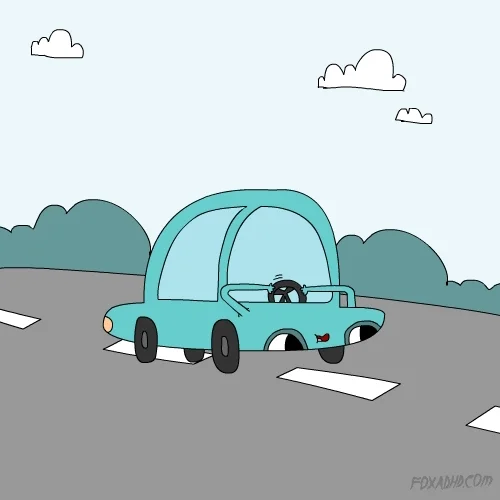
This logo isn't an ad or affiliate link. It's an organization that shares in our mission, and empowered the authors to share their insights in Byte form.
Rumie vets Bytes for compliance with our
Standards.
The organization is responsible for the completeness and reliability of the content.
Learn more
about how Rumie works with partners.
It's essay time! Your professor or teacher asks you to write an argumentative essay. One of the goals is to have a strong thesis statement, but you already feel worried.

What is a thesis statement?
A thesis statement is the road map to your essay. It lets your reader know the main ideas you will be making throughout the essay.
What makes a thesis statement argumentative?
An argumentative thesis takes a stance on a controversial issue. It’s something that someone could disagree with, so make sure it’s an opinion that you can support with facts and evidence.
Step 1: Carefully Read the Prompt
Many times, professors will give you a prompt or subject to write your argumentative essay about.
Simple prompt or question example:
"Argue whether or not self-driving cars should be banned."
When you're given a simple prompt like the one above, you may be able to easily determine what the prompt asks of you
But what if the prompt was worded like so?
"Justify the potential for self-driving cars to reduce traffic accidents and fatalities."
How do the safety features of autonomous vehicles compare to human drivers? Are there concerns about the reliability and cybersecurity of the technology?

You may wonder, "How can I analyze the more complex prompt?"
Read and re-read carefully and critically.
Highlight the key verbs that show you the purpose of the essay.
Put the prompt in your own words.
Step 2: The Formula
 Photo by Dan Cristian Pădureț on Unsplash
Photo by Dan Cristian Pădureț on UnsplashYou might be thinking, wait, English? Writing? There are formulas?!
The key to thesis statements is a simple formula:
Strong Claim (or opinion) + Details = Thesis Statement

Yes, it's as simple as that!
Remember the prompt from before, the one asking about self-driving cars? You may think of starting your thesis statement with "Yes, I agree" or "No, I disagree." However, this wouldn't give you a strong, arguable thesis statement. Simply answering the question isn't strong enough!
Example A:
"Self-driving cars should be banned."
OR
"Self-driving cars should not be banned."
Both thesis statements in Example A make a strong claim, but they don't state any details to support it.
Example B:
"Self-driving cars should be banned [strong claim] because they are more than twice as likely to be involved in accidents as traditional vehicles, increase traffic congestion, and emit higher amounts of greenhouse gases into the environment." [details]
Example B follows the formula by making a strong claim with details to support it.
Step 3: Key Features

Some key features of an argumentative thesis statement:
Debatable
It's controversial or something a person can argue against
Assertive
It takes a strong stance.
Reasonable
It must be logical.
Evidence-based
Some professors may want a 3-point thesis statement that includes evidence to back your claim/opinion.
Concise
It's to the point, without additives like, "In my opinion" or "I feel," which will just make it wordy.
Quiz Time!
Jenna is ready to write her thesis statement for her essay on whether self-driving cars should be banned or not. She is lookingto you to help her decide which one fits the goals of her assignment.
Pick the best argumentative thesis statement:
A. "Self-driving cars should not be banned because they have the potential to significantly reduce traffic accidents caused by human error, improve traffic efficiency and reduce congestion, and offer greater mobility to individuals who are unable to drive due to age or disability."
B. "Yes, I agree that self-driving cars should not be banned."
C. "In this essay, I will explore the pros and cons of self-driving cars including topics like traffic accidents occurring both from human error and computer malfunction, assisting elderly and new drivers, and the cost of owning one versus a regular car."
Quiz
Pick the best thesis statement from the above choices to help Jenna out:
A is the most effective argumentative thesis statement, as it clearly states the position and gives three solid reasons. B makes a claim but doesn't include any reasons to support it, and C doesn't take a clear stance.
Take Action

As you revise your essay's thesis statement, make sure to check for the following:
This Byte has been authored by
Michele Prezioso
Adjunct Professor Aspiring Instructional Designer
Master of Arts
